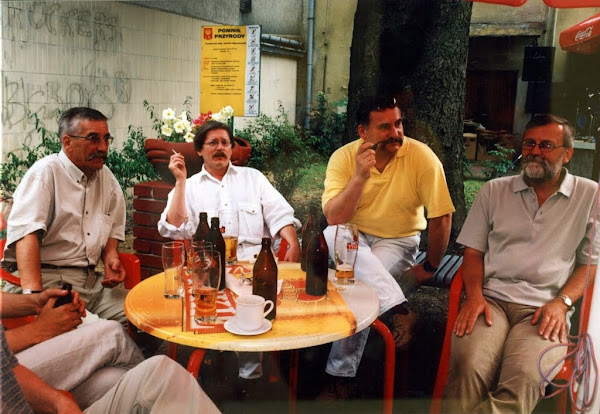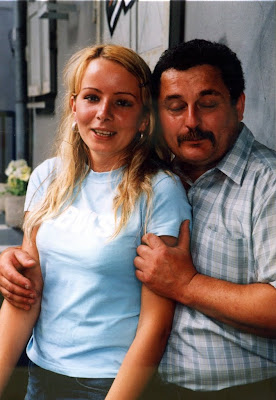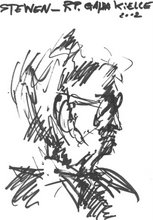Warsaw's Osiedle Przyjaźń, the Friendship Estate, lies in the district of Jelonki (Yell-on-key), behind Ratusz Bemowo (Bemovo Town Hall), the name of the bus and tram stop. It is a unique wooden housing estate.
From ul. Powstanców Śląskich (Silesian Insurgents Road) on the west of the Estate, the wooden houses are welcoming and homelike.
From ul. Gorczeska (Hill Road) on the Estate's northern end, the huts are large and barrack like.
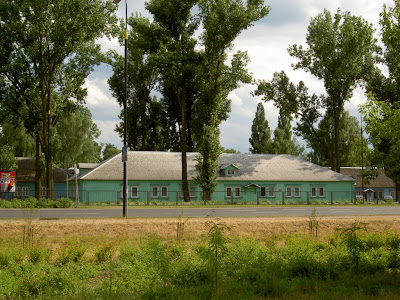
I have produced an illustrated
downloadable history of the buildings in PDF format (www.fileden.com/files/2009/2/13/2319388//Osiedle Przyazn.pdf). It is an amalgamation of Polish language information from the internet - perhaps the fullest collection so far, with much available in English for the first time. I refrained from adulterating it with my own comments, but I add them to the short description below.
The history of the huts go back to the country of East Prussia in 1939. The 25th anniversary of German victory at the Battle of Tannenburg was planned to be a major celebration of East Prussian and German pride, with Nazi style nationalism well to the fore. A small village of huts was built near today's Polish town of Olsztynek (Ol-shtinek) to house the thousands of World War I veterans attending the celebration. However, it was cancelled - World War II had broken out.
In September 1939, Polish prisoners of war started to arrive and POW camp Stalag 1B Hohenstein was created. Large numbers of French POWs were brought here from May 1940, with the camp being extended. Soviet prisoners started arriving in the latter part of 1941. Lesser numbers of Belgians, Dutch, Italians and some Czechs and English were also held here. Some 600,000 POWs may have passed through the camp, although only about 52,000 at any one time. Despite being a German military (Wehrmacht) POW camp, not an execution camp, about 55,000 POWs died from maltreatment and resulting illness - 50,000 being Soviets. All the African and Arab members of the French POW group also appear to have been murdered. The huts in Stalad 1B are shown below - from www.wwiimemories.com/hohenstein2.jpg.
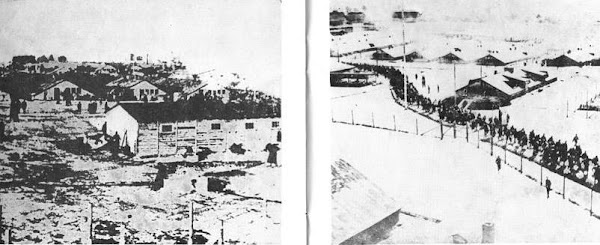
Soviet 'liberation' came, with the Germans leaving on 20 January 1945 and most POWs, except the sick and their carers, leaving the camp. The
PDF document description describes the fate of the POWs and the appalling barbarity of soldiers of the Soviet Red Army (Russians?). The Soviets used the camp to hold arrested civilians.
The Stalag 1B buildings were later dismantled and sent to Warsaw, where they were used in 1952 to create a work camp for the Soviet builders of the Joseph Stalin Palace of Culture and Science - The Friendship Estate in Jelonki. This had individual self-contained homes for the technical and administrative staff. There has been a recent suggestion that some of these may have come from Finland as part of a barter deal for Polish coal, but from pictures of the Finnish homes and discussion on the web, this seems unlikely. They today look like:

The labourers lived in barrack style huts. The one below still appears to be in its original colours.
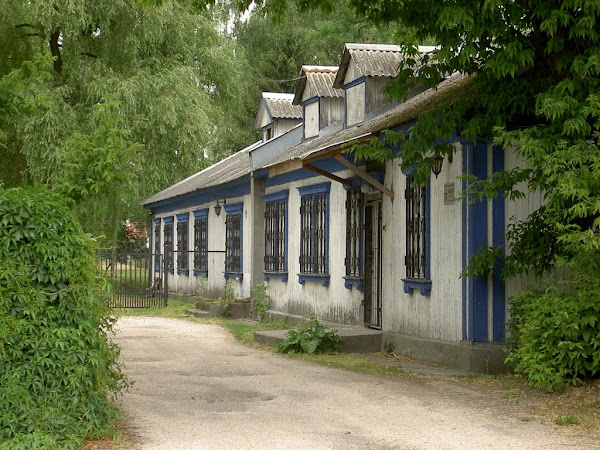
Unlike the technical staff, they had communal wash facilities. The bath house, the Estate's only brick building, is shown below - as it is today.

This used to be a canteen.

From the description of a Russian labourer - see
the full document - about the normality of being beaten and the reaction to her love affair, I get the impression that this was effectively a forced labour camp, if a more pleasant one than most. It had a wide range of facilities so that the workers could be isolated from local people, helped by the barbed wire and guards at the gates. It was also built some distance from the centre of Warsaw for the same reason.
With the Palace of Culture complete, the Soviets left and the Estate was handed over to the Polish Ministry of Higher Education in May 1955, which allocated living places to academic staff and students of various Warsaw colleges. It remains today as an intercollegiate, residence estate for staff and students. The quality of maintenance of some of the houses suggest that the teaching staff have long-term security of tenure, if they are not actually now privately owned.
The Soviet workers had a Sports Centre - still in existence, and a cinema, which was named the 'Gift Cinema' after the Soviets left, but now the Kolorada children's play centre. The Estate now also has a students club, the Karuzela (Merry-Go-Round) where the Soviet workers had their club.
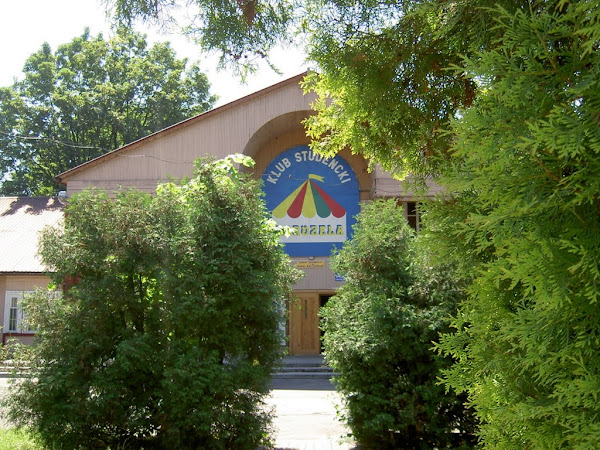
If you want to visit, the Estate is freely open to anyone passing by - it provided me with the shortest walking route from where I lived, under the bridge and across the railway line, to Wola Park shopping centre. Bus and tram routes are plentiful and there is lots of parking space at Bemowo Town Hall. Its a little bit of history, largely unknown even to the people of Warsaw.
Full credits, more information and some information about Young Stags Garden Town
are included in the full document.







